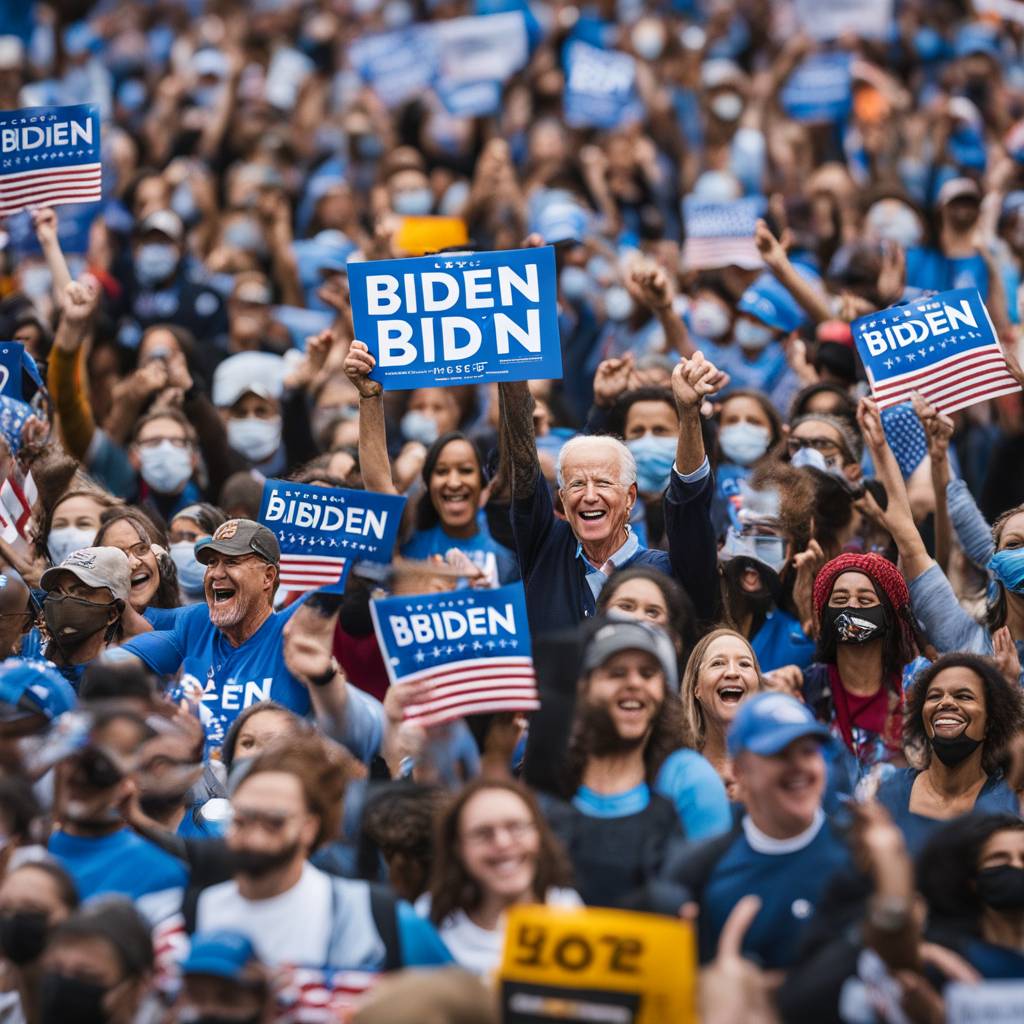President Biden’s campaign saw a significant number of protest votes in the recent primaries, indicating challenges in unifying the fractured party base. In the Wisconsin Democratic primary, 8.4% of voters opted for the “uninstructed” option, amounting to nearly 48,000 votes. Additionally, 3.1% voted for Democratic Rep. Dean Phillips who is no longer in the race. In Connecticut, 11.5% of voters chose the “uncommitted” option, while in Rhode Island, 14.9% remained uncommitted. These results reflect pushback from activists in various states unhappy with the White House’s handling of the Israel-Hamas conflict.
Activists in Wisconsin celebrated the high number of protest votes cast in the primary, with the progressive activist group, Our Revolution, highlighting the significant turnout for the “unrestricted” ballot. Similar trends were observed in Rhode Island and Connecticut, where a notable percentage of Democratic primary voters marked themselves as “uncommitted.” These results signal a growing call for a change in policy and leadership direction. While Biden won Wisconsin over Trump in 2020 by a narrow margin, the substantial number of uncommitted votes during this primary season indicates potential challenges for the president in the upcoming general election.
The theme of voters choosing to remain uncommitted rather than supporting Biden has been consistent throughout the primary season, with tens of thousands of voters across several states declining to back the president. Progressive activist Nina Turner highlighted the need for Biden to reconsider his stance on issues like loyalty to Netanyahu, suggesting that his alignment with certain policies could impact the election results in November. The Biden campaign has not yet responded to the protest votes and activists’ calls for change. On the Republican side, a significant number of voters also chose not to support Trump in the primaries, with former Ambassador Nikki Haley receiving a notable percentage of the vote in Wisconsin, Connecticut, and Rhode Island.
The rejection of Trump by a portion of Republican voters in key primary states, including Wisconsin, Connecticut, and Rhode Island, poses a challenge for the former president and his allies. While some voters opted for alternative candidates like Nikki Haley and Ron DeSantis, a notable percentage chose the “uninstructed” option, reflecting discontent within the GOP base. Amidst concerns surrounding current leadership and policy direction, the primary results signal potential shifts in voter preference and party dynamics leading up to the general election. The trend of protest votes and uncommitted voters on both the Democratic and Republican sides underscores the growing dissatisfaction with the status quo and a call for change in political leadership and decision-making.
As the primary season progresses, the contentious issues surrounding President Biden’s leadership, Republican support for Trump, and voter dissatisfaction are likely to shape the narrative leading into the general election. The significant number of protest votes and uncommitted voters in key states like Wisconsin, Connecticut, and Rhode Island point to a wider sentiment of discontent and protest within both party bases. Activists and progressive groups continue to push for a bold redirection in policy and leadership, highlighting the need for a change in direction to address pressing issues and concerns. The primary results serve as a critical reflection of the current political landscape and may influence strategic decisions and campaign messaging for both parties as they navigate the road to the November election.













